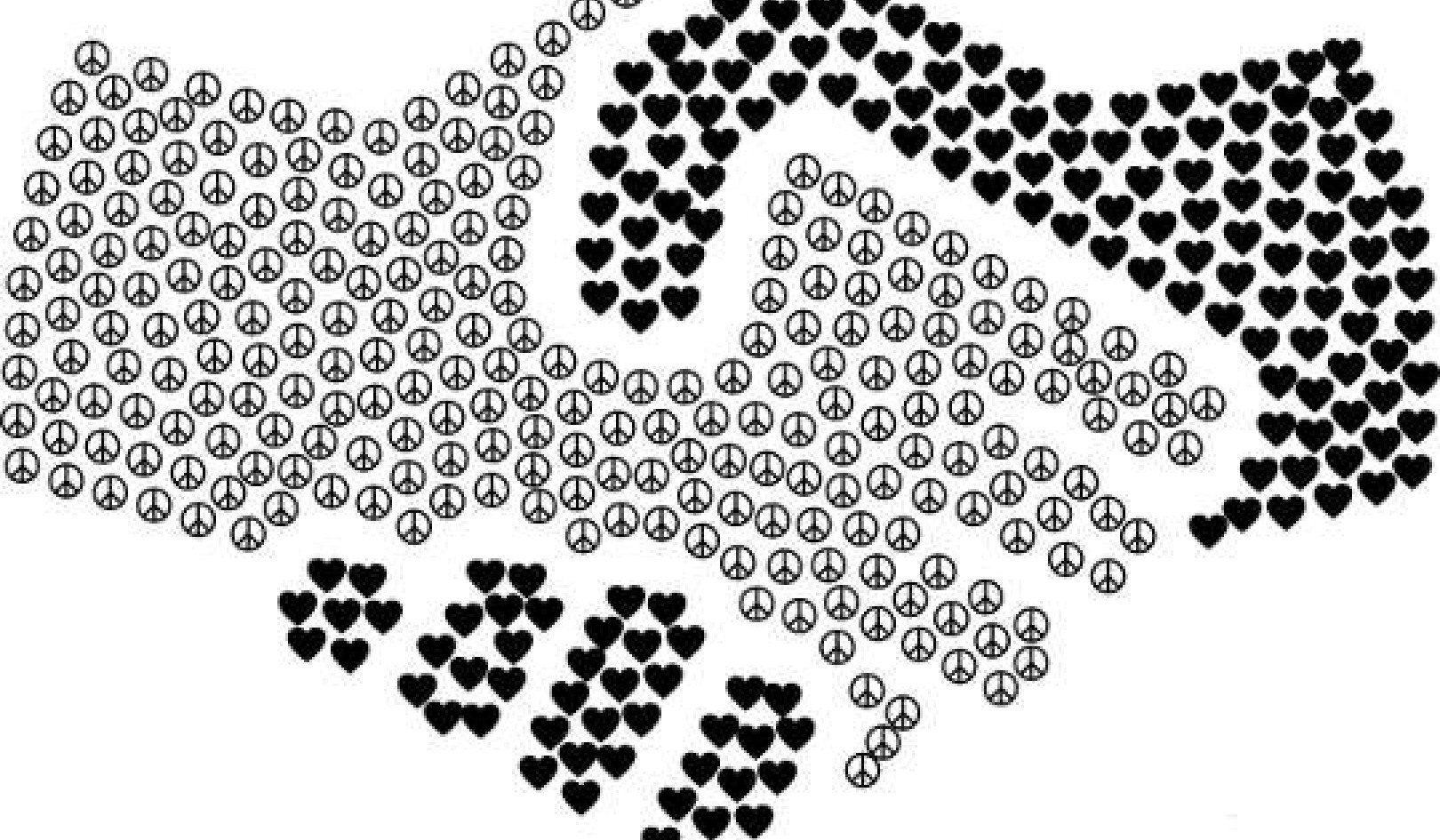
The web is an informational paradise and a hellscape at the same time.
A boundless wealth of high-quality information is available at our fingertips right next to a ceaseless torrent of low-quality, distracting, false and manipulative information.
The platforms that control search were conceived in sin. Their business model auctions off our most precious and limited cognitive resource: attention. These platforms work overtime to hijack our attention by purveying information that arouses curiosity, outrage, or anger. The more our eyeballs remain glued to the screen, the more ads they can show us, and the greater profits accrue to their shareholders.
It is hardly surprising, therefore, all this should take a toll on our collective attention. A 2019 analysis of Twitter hashtags, Google queries, or Reddit comments found that across the past decade, the rate at which the popularity of items rises and drops has accelerated. In 2013, for example, a hashtag on Twitter was popular on average for 17.5 hours, while in 2016, its popularity faded away after 11.9 hours. More competition leads to shorter collective attention intervals, which lead to ever fiercer competition for our attention – a vicious circle.
To regain control, we need cognitive strategies that help us reclaim at least some autonomy and shield us from the excesses, traps and information disorders of today’s attention economy.
Critical thinking is not enough
The textbook cognitive strategy is critical thinking, an intellectually disciplined, self-guided and effortful process to help identify valid information. In school, students are taught to closely and carefully read and evaluate information. Thus equipped, they can evaluate the claims and arguments they see, hear, or read. No objection. The ability to think critically is immensely important.
But is it enough in a world of information overabundance and gushing sources of disinformation? The answer is “No” for at least two reasons.
First, the digital world contains more information than the world’s libraries combined. Much of it comes from unvetted sources and lacks reliable indicators of trustworthiness. Critically thinking through all information and sources we come across would utterly paralyse us because we would never have time to actually read the valuable information we painstakingly identify.
Second, investing critical thinking in sources that should have been ignored in the first place means that attention merchants and malicious actors have been gifted what they wanted, our attention.
Critical ignoring to make information management feasible
So, what tools do we have at our disposal beyond critical thinking? In our recent article, we – a philosopher, two cognitive scientists and an education scientist – argue that as much as we need critical thinking we also need critical ignoring.
Critical ignoring is the ability to choose what to ignore and where to invest one’s limited attentional capacities. Critical ignoring is more than just not paying attention – it’s about practising mindful and healthy habits in the face of information overabundance.
We understand it as a core competence for all citizens in the digital world.
Without it, we will drown in a sea of information that is, at best, distracting and, at worst, misleading and harmful.
Tools for critical ignoring
Three main strategies exist for critical ignoring. Each one responds to a different type of noxious information.
In the digital world, self-nudging aims to empower people to be citizen “choice architects” by designing their informational environments in ways that work best for them and that constrain their activities in beneficial ways. We can, for instance, remove distracting and irresistible notifications. We may set specific times in which messages can be received, thereby creating pockets of time for concentrated work or socialising. Self-nudging can also help us take control of our digital default settings, for instance, by restricting the use of our personal data for purposes of targeted advertisement.
Lateral reading is a strategy that enables people to emulate how professional fact checkers establish the credibility of online information. It involves opening up new browser tabs to search for information about the organisation or individual behind a site before diving into its contents. Only after consulting the open web do skilled searchers gauge whether expending attention is worth it. Before critical thinking can begin, the first step is to ignore the lure of the site and check out what others say about its alleged factual reports. Lateral reading thus uses the power of the web to check the web.
Most students fail at that task. Past studies show that, when deciding whether a source should be trusted, students (as well as university professors) do what years of school has taught them to do – they read closely and carefully. Attention merchants as well as merchants of doubt are jubilant.
Online, looks can be deceiving. Unless one has extensive background knowledge it is often very difficult to figure out that a site, filled with the trappings of serious research, peddles falsehoods about climate change or vaccinations or any variety of historical topics, such as the Holocaust. Instead of getting entangled in the site’s reports and professional design, fact checkers exercise critical ignoring. They evaluate the site by leaving it and engage in lateral reading instead.
The do-not-feed-the-trolls heuristic targets online trolls and other malicious users who harass, cyberbully or use other antisocial tactics. Trolls thrive on attention, and deliberate spreaders of dangerous disinformation often resort to trolling tactics. One of the main strategies that science denialists use is to hijack people’s attention by creating the appearance of a debate where none exists. The heuristic advises against directly responding to trolling. Resist debating or retaliating. Of course, this strategy of critical ignoring is only a first line of defence. It should be complemented by blocking and reporting trolls and by transparent platform content moderation policies including debunking.
These three strategies are not a set of elite skills. Everybody can make use of them, but educational efforts are crucial for bringing these tools to the public.
Critical ignoring as a new paradigm for education
The philosopher Michael Lynch has noted that the Internet “is both the world’s best fact-checker and the world’s best bias confirmer – often at the same time.”
Navigating it successfully requires new competencies that should be taught in school. Without the competence to choose what to ignore and where to invest one’s limited attention, we allow others to seize control of our eyes and minds. Appreciation for the importance of critically ignoring is not new but has become even more crucial in the digital world.
As the philosopher and psychologist William James astutely observed at the beginning of the 20th century: “The art of being wise is the art of knowing what to ignore.”![]()
About The Authors
Ralph Hertwig, Director, Center for Adaptive Rationality, Max Planck Institute for Human Development; Anastasia Kozyreva, Cognitive scientist, Max Planck Institute for Human Development; Sam Wineburg, Professor of Education and (by courtesy) History, Stanford University, and Stephan Lewandowsky, Chair of Cognitive Psychology, University of Bristol
This article is republished from The Conversation under a Creative Commons license. Read the original article.

Books Improving Attitude and Behavior from Amazon's Best Sellers list
"Atomic Habits: An Easy & Proven Way to Build Good Habits & Break Bad Ones"
by James Clear
In this book, James Clear presents a comprehensive guide to building good habits and breaking bad ones. The book includes practical advice and strategies for creating lasting behavior change, based on the latest research in psychology and neuroscience.
Click for more info or to order
"Unf*ck Your Brain: Using Science to Get Over Anxiety, Depression, Anger, Freak-Outs, and Triggers"
by Faith G. Harper, PhD, LPC-S, ACS, ACN
In this book, Dr. Faith Harper offers a guide to understanding and managing common emotional and behavioral issues, including anxiety, depression, and anger. The book includes information on the science behind these issues, as well as practical advice and exercises for coping and healing.
Click for more info or to order
"The Power of Habit: Why We Do What We Do in Life and Business"
by Charles Duhigg
In this book, Charles Duhigg explores the science of habit formation and how habits impact our lives, both personally and professionally. The book includes stories of individuals and organizations who have successfully changed their habits, as well as practical advice for creating lasting behavior change.
Click for more info or to order
"Tiny Habits: The Small Changes That Change Everything"
by BJ Fogg
In this book, BJ Fogg presents a guide to creating lasting behavior change through small, incremental habits. The book includes practical advice and strategies for identifying and implementing tiny habits that can lead to big changes over time.
Click for more info or to order
"The 5 AM Club: Own Your Morning, Elevate Your Life"
by Robin Sharma
In this book, Robin Sharma presents a guide to maximizing your productivity and potential by starting your day early. The book includes practical advice and strategies for creating a morning routine that supports your goals and values, as well as inspiring stories of individuals who have transformed their lives through early rising.






















